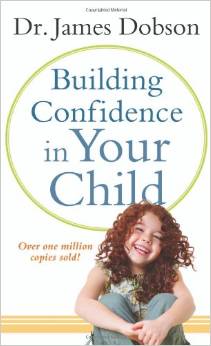Be Intentional!
by Janice Morris, Director
Recently I have found myself encouraging parents in my office to be intentional with their kids as they affirm character versus achievement. Sadly, it is impossible to live in Silicon Valley and not feel the pressure to make sure our kids get the highest scores, win the most important competitions and earn the largest scholarships. Without even realizing it, we also pass on our own internal pressure to perform--especially if we are a firstborn child ourselves--(see previous article "Understanding Your Firstborn Child.")
What if we all took a week purposing to look for the internal qualities that really matter...
Try Something Different This Week!
 --and then took the time to affirm our child's great choice to be kind to his sibling, respectful of his toys, self-sacrificing toward a rejected classmate or honest when it is either difficult or invisible? Better yet, call out that honorable character quality in front of your spouse or a personal friend.
--and then took the time to affirm our child's great choice to be kind to his sibling, respectful of his toys, self-sacrificing toward a rejected classmate or honest when it is either difficult or invisible? Better yet, call out that honorable character quality in front of your spouse or a personal friend.
What about encouraging creativity even when it is messy, allowing time for day-dreaming or imagination even when it slows down our marginless schedules, or collaborating to redecorate her bedroom in a way she creates even if it would never win awards in House Beautiful?
In his book, Building Confidence in your Child, noted psychologist Dr. James Dobson outlines strategies for building and restoring the sense of value that children need in the various stages of their educational development. With plenty of poignant anecdotes and personal experiences, Dobson explores how our culture's pervasive emphasis on beauty and intelligence has damaged our kids and has lead to devastating consequences. In an easy-going yet challenging question and answer format, Dobson provides insight, hope and practical tools which parents can use to help their children survive the terrifying world of confidence-killing attitudes and behaviors.
Flattery Versus Encouragement
Flattery is defined as "excessive and insincere praise, especially that given to further one's own interests."
I have also recently begun to notice a surprising number of kids who have swung in the other direction--lacking a humble, accurate perspective about themselves. Kids who are being flattered (rather than encouraged) by constantly being told what a wonderful job they have done (when in fact it may have been mediocre) are likely to either stop believing all of the affirmations (because intrinsically they know the real truth) or develop an inaccurate sense of their abilities. This inflated sense of capacity is like a house of cards, and can be just as damaging as low self esteem when they begin to engage the real world. Imagine the experience of a child who has been taught he can do no wrong as he faces his first constructively critical remarks on the job or in a college classroom. His responses are likely to be super sensitive, easily offended and hypercritical causing him to be unteachable.
A friend of mine recently introduced me to a reality show called Shark Tank in which young entrepreneurs pitch their product or service to several venture capitalists. In the one program I saw, a clearly bright (but young) entrepreneur did a good enough job presenting her product, but while listening to their feedback, interrupted and challenged one of the venture capitalists as he was trying to share his more experienced perspective. At that point, three of the businessmen immediately dropped their support of the woman's product, explaining that they could not invest in someone who was unteachable and therefore not a real entrepreneur.
The Perils of Comparison
We need to give our kids an accurate and balanced picture of themselves where they neither compare their strengths to others' weaknesses (with resulting arrogance), or compare their weaknesses to others' strengths resulting in damaged emotions and an erroneous but often self-fulfilling sense of worthlessness.
It is not nearly as easy to honor and recognize character qualities like teachability, humility, kindness, patience, generosity, compassion, integrity or faith as it is achievements, but when we become intentional to note and affirm these qualities for our kids, we help our kids begin to look for these things themselves. At the same time, they can begin to secure the tools with which they can avoid buying into a worldly system of drivenness and self focus that leads to empty, detached lives--lives that may be full of worldly pleasure or goods, but missing the values that make life meaningful.
On a personal note, many of you know that I have four amazing grown kids with kids of their own. In worldly terms they are extremely successful, but I'll never forget a conversation I had with my oldest son's wife who with my son has built four businesses that rank at the top of their field internationally. I was deeply touched when she almost casually shared with me that every day of her life, my son makes her feel like the most special woman in the world. I couldn't be prouder! This is the kind of success that matters, isn't it?
Imagine a society filled with kids who have grown up to have an accurate assessment of their own abilities AND the courage and humility to recognize and affirm the best in others--and at the same time--living out true character--simply because they know who they are. We have an opportunity and a challenge to raise up a generation of men and women who care more about others than themselves while maintaining their own dignity.
Will you be intentional to help affirm character over achievement? Let's change our culture together!